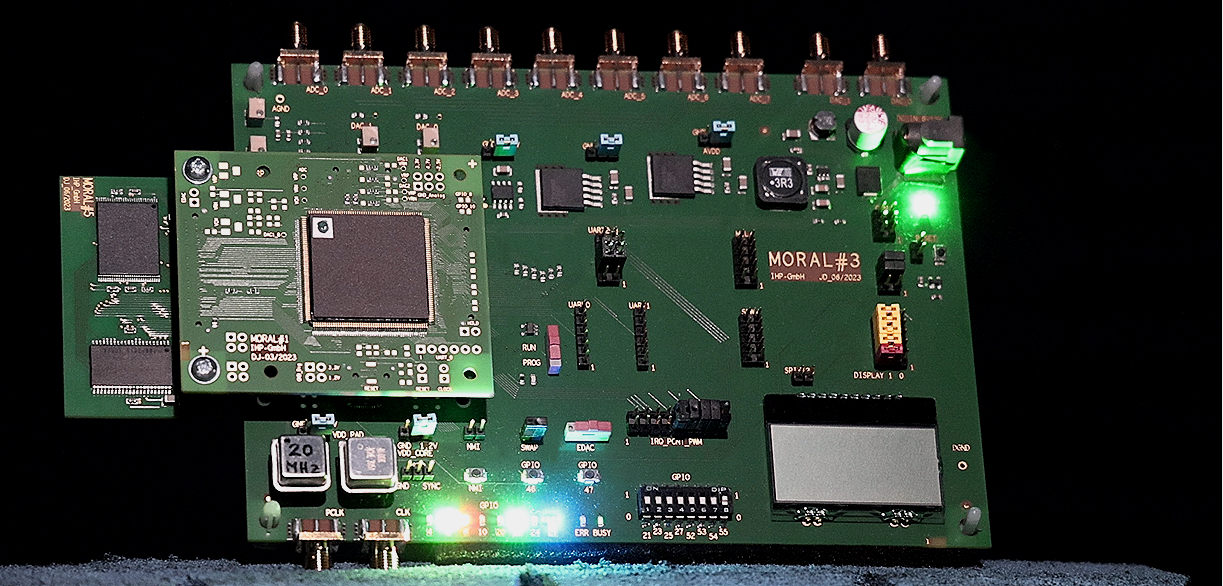IHP - Leibniz Institute for High Performance Microelectronics, a leading insti-tute for microelectronics and communications technology, is making an im-portant contribution to the further development of European space capabili-ties with its research and solutions and thus contributes to the technological sovereignty of Germany and Europe. Several projects - Scale4Edge, COCHISA, MORAL and 6G-TakeOff - represent IHP's commitment to developing European capabilities in the space sector, from processor architectures up to satellite communications technologies.
The EU-funded project MORAL addresses the urgent need for radiation-hardened, fault-tolerant and ITAR-free (European International Traffic in Arms Regulations) microcontrollers for small satellites and other space applications, supporting mission control, navigation, and earth observation. Built on IHP's innovative PEAKTOP architecture, the MORAL microcontroller ensures adapta-bility and resilience in extreme space environments. This chip includes several space relevant interfaces, e.g. SpaceWire, as well as 12-bit ADC and DAC. The MORAL microcontroller manufactured in the IHP SG13RH has shown excellent reliability and radiation tolerance in tests and offers great potential for use in future space missions. The MORAL project has been recently finished very suc-cessfully and the following steps, towards market exploitation are currently under preparation.
The Scale4Edge project, funded by Federal Ministry of Education and Research (BMBF), aims to enhance the resilience and reliability of microprocessors for aerospace applications. Focused on developing fault-tolerant, RISC-V-based multiprocessor systems, Scale4Edge is creating highly dependable hardware for avionics, medical, nuclear, and space applications.
The European project COCHISA is addressing the rising need for high-data-rate satellite communications through the development of a European beamform-ing core-chip, scalable across frequency bands and adaptable for various satel-lite systems. By designing core-chips in the X-band (10 GHz) and Ka-band (28 GHz) frequencies, COCHISA enables efficient, high-throughput satellite infra-structure.
The BMBF-funded 6G-TakeOff initiative focuses on the future of connectivity by developing a holistic 3D communication network architecture. This new framework integrates flying network nodes with terrestrial and satellite-based components, ensuring continuous, secure and high-quality connectivity through redundancy and dynamic optimisation of the system.
“Through its research and projects, IHP is paving the way for Europe's strategic independence in space, supporting a resilient supply chain and setting new standards for high-performance, cost-effective space solutions. We are work-ing jointly also with German Aerospace Center (DLR) and European Space Agency (ESA) towards evaluation of our next technologies for space. We ex-pect that in 2025 the IHP technology SG13RH will be space evaluated” - says Prof Milos Krstic, who heads the Systems Architectures department at IHP, which is conducting the projects presented.
More information on the IHP space projects:
MORAL: https://www.moral-project.eu
Scale4Edge: https://www.edacentrum.de/scale4edge/en
COCHISA: https://cochisa-project.eu
6G-TakeOff: https://www.6g-takeoff.de



